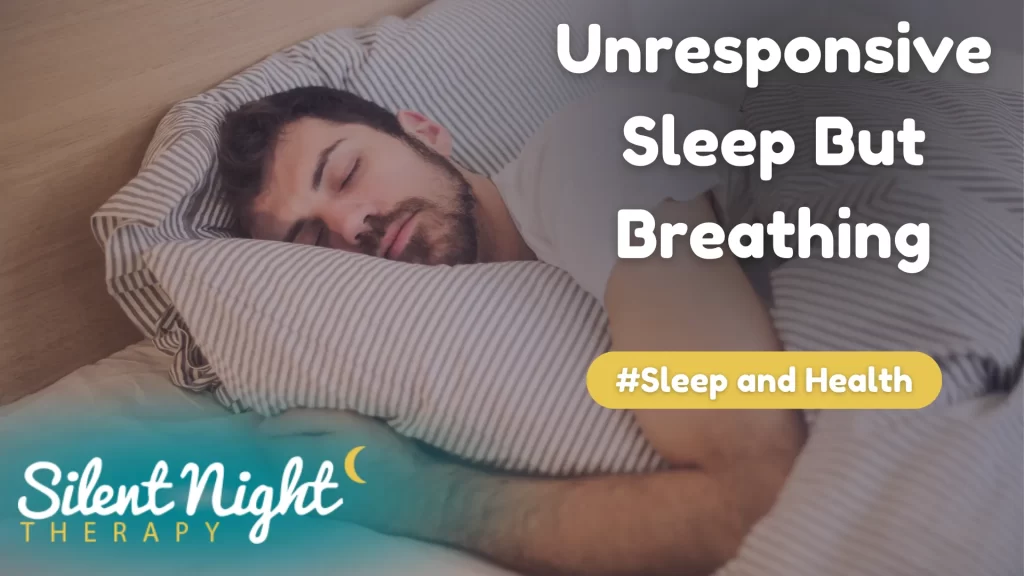Posted on Sunday, October 1st, 2023 at 9:00 am
Some people are not at all easy to wake up. You may have to shake them or call out to them repeatedly to get them moving, but you can get them to wake up even if it’s not an easy task. Sometimes, however, there is something more serious going on.
If you can’t get a person to wake up no matter what you do, a serious medical issue such as a coma could be the reason. If their eyes are open but they still seem unresponsive, then the explanation could be Unresponsive Wakefulness Syndrome. Either way, you must make sure that the person can breathe properly, check their responsiveness, and then call 911 if you cannot get them to respond.
When You Can’t Wake Someone Up
What do you do when you can’t wake someone up but they’re breathing? According to the Red Cross, the first step is to check if they’re able to respond when you try to get their attention. If they cannot, then the next step is to get medical attention.
There can be more than one cause of inability to wake up. The National Health Service of the UK defines a coma as a state in which a person is unresponsive and cannot wake up, and lists possible causes as:
- Stroke
- Head injury
- Encephalitis
- Alcohol poisoning
- Diabetes (hypoglycemia or hyperglycemia)
Even if the cause of the problem is different from all of these, you don’t want to take any chances. Call 911 right away.
Signs of Unresponsiveness
When you are trying to wake a person up, you probably begin by calling out to them that it’s time to wake up. If they remain asleep, the usual next step is to shake them gently. If they don’t respond, what does that mean?
According to the Red Cross, typical signs of unresponsiveness include:
- Not responding to a loud voice
- Not responding to touch
The method the Red Cross recommends for assessing responsiveness is simple:
- Call out to the person using their name
- Tap their shoulders if they’re an adult or the bottom of their foot if they’re a child
- Shout using their name again
- If they don’t respond in ten seconds, they’re unresponsive
There is also a condition in which a person is awake, but unresponsive. This condition used to be known as a vegetative state but is now referred to as Unresponsive Wakefulness Syndrome, according to BMC Medicine. A person with Unresponsive Wakefulness Syndrome shows no signs of consciousness despite being awake in some sense. Their eyes are open, but they don’t interact with or even seem aware of the outside world.
Steps for Assessing Responsiveness
Medical professionals may use a more detailed method for assessing responsiveness.
The Glasgow Coma Scale is often used to assess responsiveness in patients who may be comatose. According to the UK National Health Service, the steps for assessing responsiveness in the Glasgow Coma Scale are as follows:
- Check whether the person can open their eyes. If their eyes open on their own, that’s worth four points.
- Check whether the person can respond verbally to a command. If they can respond appropriately, that’s worth five points.
- Check the person’s ability to move in response to a command. If they can respond to commands, that’s worth six points.
When a medical professional is checking a patient’s responsiveness on the Glasgow Coma Scale, a score of eight points or less may indicate a coma. This scale isn’t one that you can use without medical training, but it may give you some idea of what the medical professionals will be looking for.
Immediate Actions to Take
Here are some immediate actions to take with a person who is unresponsive, according to the Red Cross:
- Check their breathing. See if you can see their chest moving up and down or feel their breath on your skin.
- Move the person over on their side, with their head tilted back so their tongue doesn’t block their airway.
- Call emergency services.
Once emergency services personnel have had a chance to assess the unresponsive patient, you will have a better understanding of what is going on and what you might need to do next. According to an article in Sleep, sleep-wake disorders are a common side-effect of traumatic brain injuries. Since traumatic brain injuries are a frequent cause of coma, there is a possibility that a coma patient will need to seek help with sleep issues after coming out of the coma.
Contact a Sleep Specialist Today
If you or a loved one has a sleep issue, Silent Night Therapy can help you find out exactly what the problem is and design a treatment to address the issue and get you the relief you deserve. Contact Silent Night Therapy online or call 631-983-2463 today.

